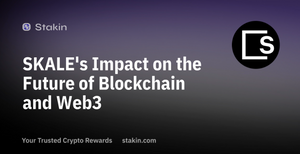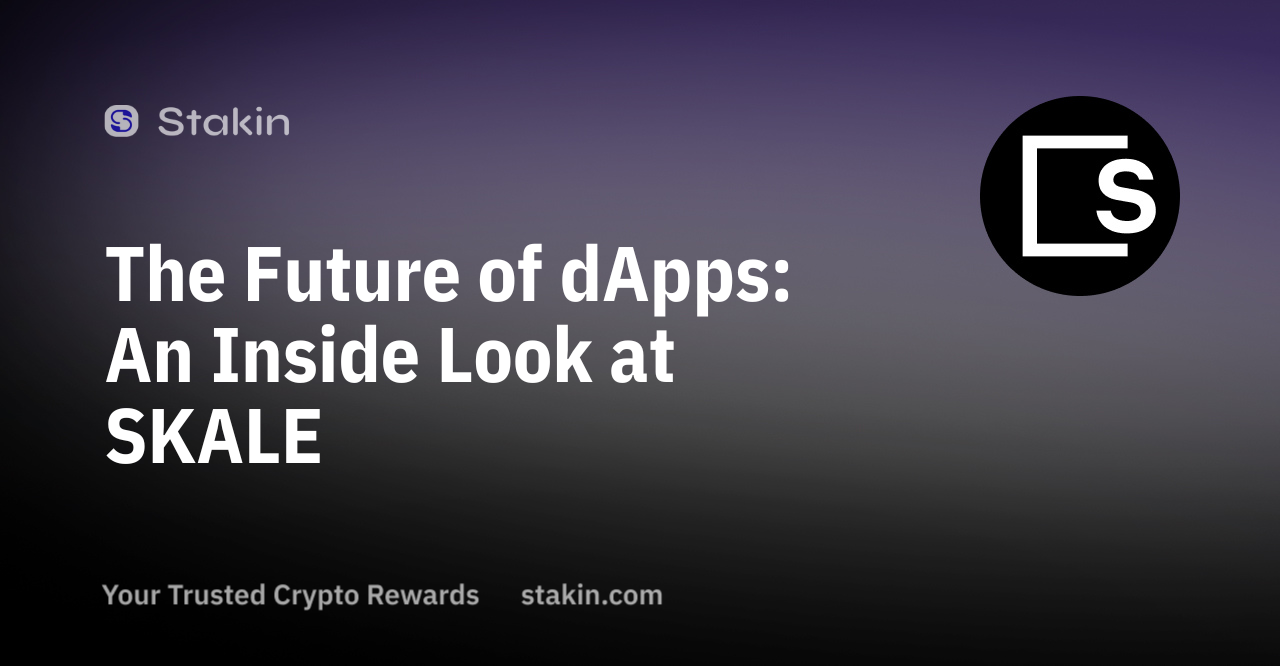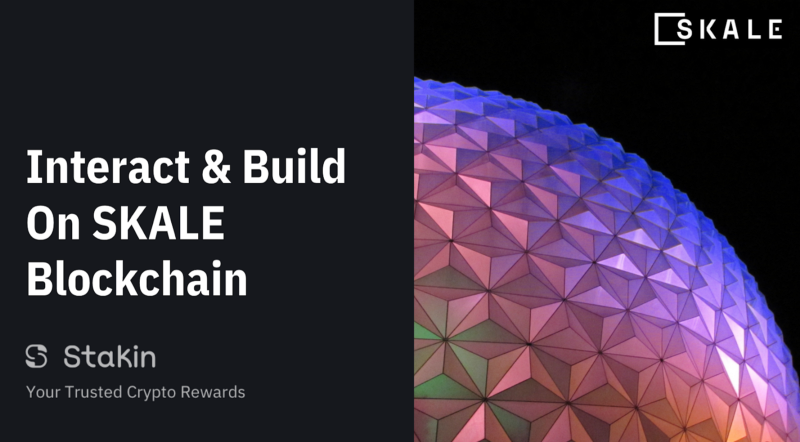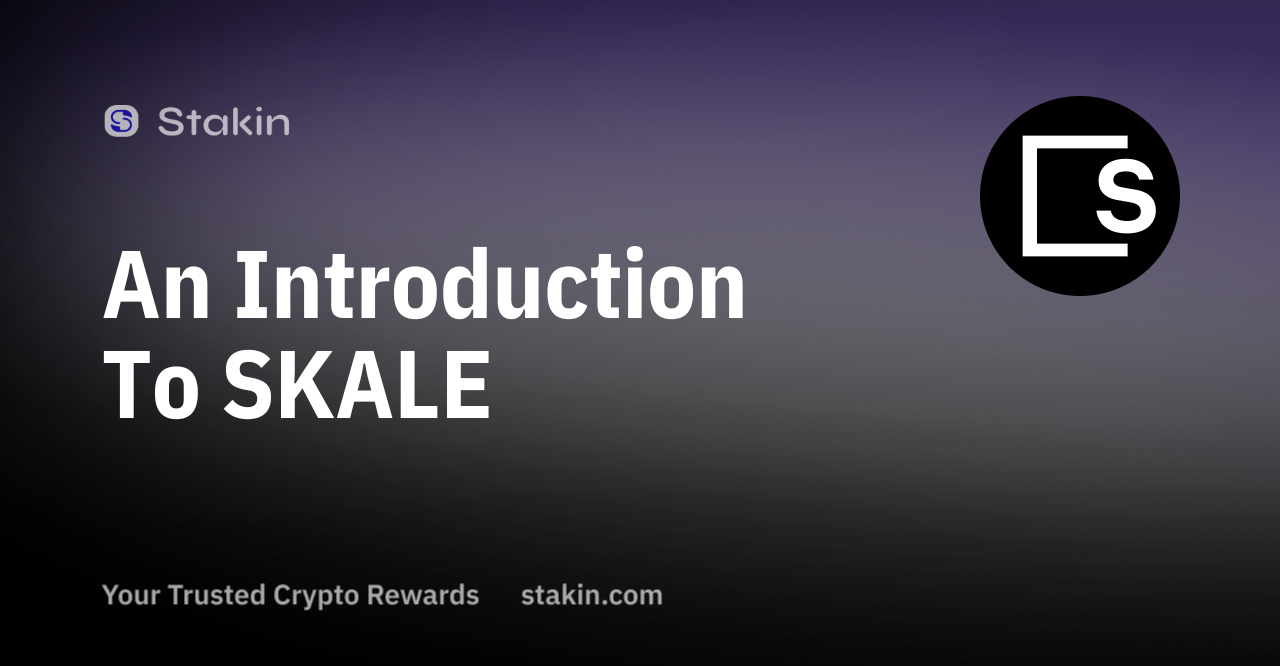It's the question we all long to know the answer to what's next in blockchain? However, this question seems impossible to answer with the blockchain landscape's continuous evolution. New players and technologies regularly take a stab at solving scalability and security issues for the blockchain and broader Web3 space.
In recent blog posts, we highlighted SKALE, the network focussed on solving scalability and security challenges. Since then, SKALE has introduced the Levitation Protocol. So, let's look at this network's impact on the future of Web3.
SKALE's Mission and Goals
First things first, let's have a look at SKALE's mission and goals. SKALE is designed for fast, secure, user-centric Ethereum scaling. SKALE chains offer zero gas fees to end-users and include features such as on-chain file storage, interchain messaging, zero-cost minting, ML/AI smart contracts, and enhanced security features.
The SKALE network enables developers to deploy their EVM blockchain in minutes without sacrificing speed, security, or decentralization. Its mission is to enhance blockchain technology's performance, flexibility, and usability, ultimately empowering developers to create decentralized applications (dApps) with seamless user experiences.
SKALE's innovative solutions can potentially revolutionize the blockchain and Web3 ecosystems in several ways. It addresses the scalability challenges that have hindered the mass adoption of blockchain technology. By providing a highly scalable infrastructure, SKALE significantly increases transaction throughput, enabling blockchain networks to handle more transactions quickly and efficiently. This scalability breakthrough opens doors for the broader adoption of blockchain technology in various industries.
SKALE's Hybrid Architecture
The SKALE Network has a hybrid architecture that combines the benefits of both Layer 1 and Layer 2 solutions. Each SKALE Chain functions as a Layer 1 base layer built on top of a Layer 1 blockchain, such as Ethereum, providing both the efficiency of Layer 2 solutions and the robust security of Layer 1. This unique approach eliminates traditional blockchain networks' typical trade-off between security and scalability.
SKALE Network also offers customization and features through its App-chains and Hub-chains. App chains are tailored for specific applications, while Hub-chains cater to an ecosystem of applications, enabling inter-chain communication and shared infrastructure. This allows developers to choose the most suitable configuration for their decentralized applications, ensuring fast, efficient, and predictable performance.
For enterprises, the App-chain model provides advantages such as creating permissioned or permissionless blockchains to meet specific needs, customizable chain parameters for optimized performance, and independent operation of each App-chain for consistent performance even under high load.
The Levitation Protocol
On June 1st, 2023, the SKALE network introduced the Levitation Protocol, an open-source solution that aims to enhance the network with flexible and configurable zero-knowledge scaling solutions.
The protocol enables seamless integration of various zero-knowledge proof solutions into the SKALE Architecture, with roll-up connectivity to the Ethereum Mainnet. It includes the addition of a new Layer 1 blockchain called SKALE G, fortified by ZK Rollups.
The Levitation Protocol empowers developers and businesses to leverage decentralized ZK solutions through the SKALE Chain, offering increased flexibility in configuring applications within SKALE's app-chain network.
The Levitation Protocol distinguishes itself from other ZK protocols through its decentralized sequencer and modular architecture, enabling seamless interaction between existing ZKRs. Additionally, multiple ZKRs can run in a common environment of a single Levitation-enabled chain, which allows a common ledger of transactions and eases the interaction of rollups.
Advantages of SKALE
SKALE offers numerous advantages for developers, users, and businesses. For developers, SKALE provides a developer-friendly environment with familiar tools and programming languages, making it easier to build and deploy dApps. It offers customizable virtualized subchains, allowing developers to tailor their blockchain networks to specific use cases. Additionally, SKALE's modular scaling approach enables developers to seamlessly scale their applications without sacrificing performance or incurring excessive costs.
For users, SKALE enhances the user experience by significantly reducing transaction times and costs. Users can enjoy fast and affordable transactions, making blockchain applications more accessible and practical for everyday use. By building on SKALE, businesses can develop blockchain-based solutions that can handle high transaction volumes, thus improving efficiency, transparency, and security.
Final Thoughts
So, what's next in blockchain? SKALE's scalability breakthrough can transform existing industries and create new opportunities. For instance, SKALE could revolutionize payment systems in finance, enabling faster cross-border transactions and reducing fees. In supply chain management, SKALE's scalability can enhance transparency and traceability, reducing fraud and improving efficiency. The gaming industry could benefit from SKALE's high throughput, providing seamless multiplayer experiences and enabling the creation of non-fungible tokens (NFTs) with increased functionality and interactivity.
SKALE's mission and goals and its potential impact on the blockchain and Web3 ecosystems highlight its significance in shaping the future of decentralized technologies. With its scalability solutions, SKALE offers advantages for developers, users, and businesses, opening up new possibilities for various industries. While challenges remain, SKALE's growth and adoption opportunities are substantial, and its transformative potential is poised to drive innovation and progress in the blockchain space.
DISCLAIMER: This is not financial advice. Staking, delegation, and cryptocurrencies involve a high degree of risk, and there is always the possibility of loss, including the failure of all staked digital assets. Additionally, delegators are at risk of slashing in case of security or liveness faults on some protocols. We advise you to do your due diligence before choosing a validator.



